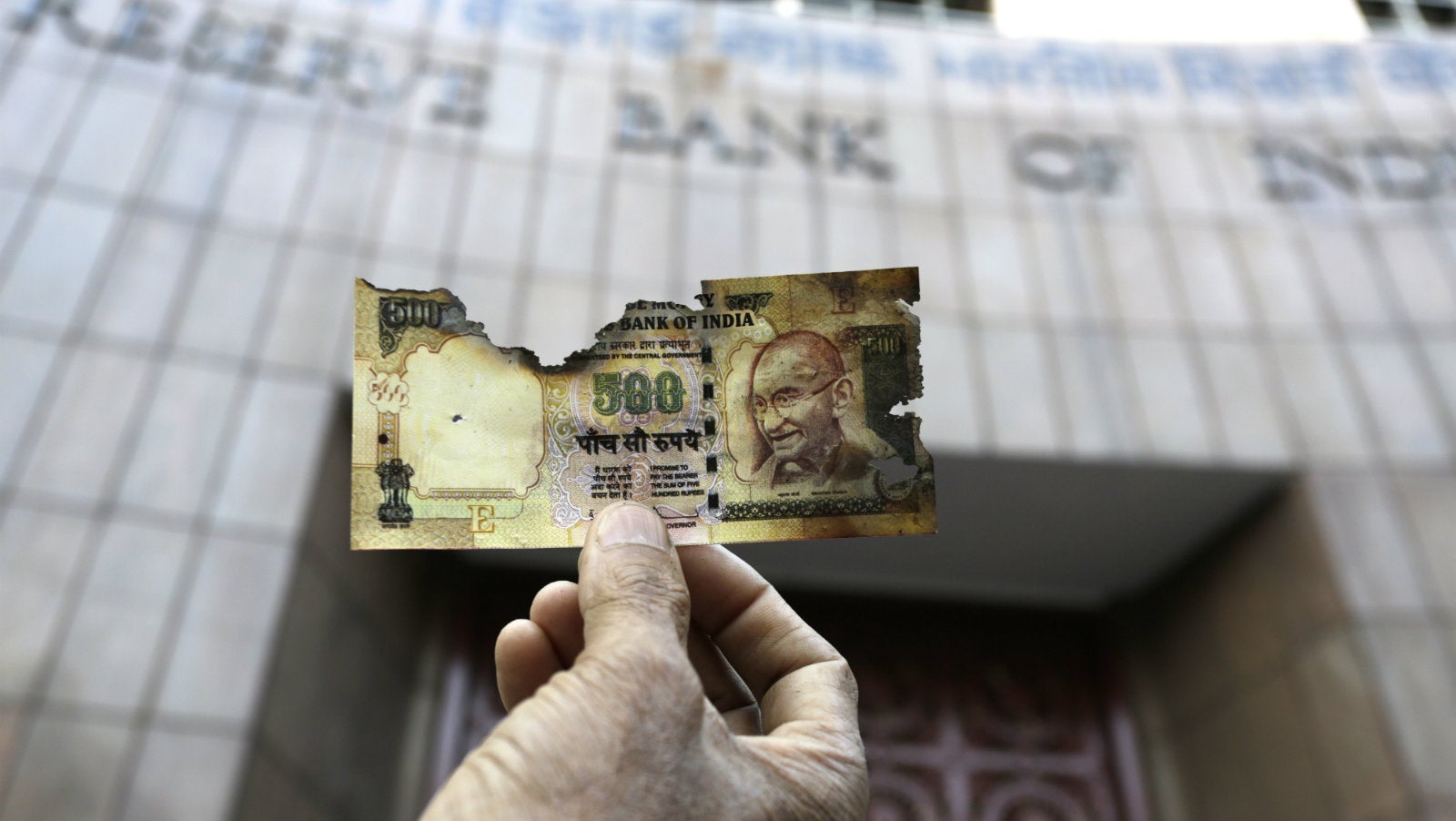Executives across India Inc can’t stop talking about the one pain they’re all feeling
India Inc is currently in the midst of an earnings season with firms announcing results of their financial performance for the October-December 2016 quarter. And while every season sees the management explaining profits and losses to shareholders and investors in different ways, this time around everyone has the same story: demonetisation was bad for business.


India Inc is currently in the midst of an earnings season with firms announcing results of their financial performance for the October-December 2016 quarter. And while every season sees the management explaining profits and losses to shareholders and investors in different ways, this time around everyone has the same story: demonetisation was bad for business.
Prime minister Narendra Modi’s Nov. 08, 2016, decision removed some 86% of currency in circulation (by value) in India. The ensuing cash crunch forced consumers in Asia’s third-largest economy to curb discretionary spending, making it tough for firms to manage liquidity, and thus slowed industrial growth.
Here’s how executives from fast-moving consumer goods firms to power and infrastructure companies highlighted the impact of demonetisation over the last few months:
“During the quarter, commercial vehicle segments of the company witnessed demand shrinkage due to the demonetisation—M&HCV (medium and heavy commercial vehicles) segment witnessed major pressure with a fall of 9% year-on-year and LCV (light commercial vehicles) segment was overall flat.” Tata Motors (pdf)
“(The) government’s initiatives to curb the parallel economy and make a transition to (a) cashless economy have caused disruption whose impact on the business sentiment is yet to be conclusively assessed.” Larsen & Toubro
“Demonetisation effectively drained liquidity. I don’t think that’s about price elasticity, I think that’s about the current shock to the circulation and liquidity.” James Quincey, Coca Cola CEO designate
“If you look at Q2 second quarter results, the growth was higher than 10%, so you can safely assume that 1% to 2% growth we lost on account of demonetisation.” Nitin Sood, CFO, PVR (pdf)
“The positive market growth momentum witnessed in the second quarter, aided by good monsoon and flow through of 7th Pay Commission benefits, was impacted with implementation of demonetisation in November 2016.” Varun Berry, managing director, Brittania
“In India, demonetisation cost us a swing from strong growth through Q3 to a decline in Q4 .” Ian Cook, global CEO, Colgate-Palmolive
“There has been a temporary adverse impact of the demonetisation leading to growth deceleration in India where we posted just 3% net sales growth.” Alexandre Ricard, chairman and CEO, Pernod Ricard
“Demonetisation, however, did halt growth temporarily during the December quarter.” Sanjiv Mehta, managing director and CEO, Hindustan Unilever
“(In) India, demonetisation, the elimination of Rs500 and Rs1,000 bank notes, that accounted for over 80% of that country’s currency in a cash-dominated economy, was an unexpected headwind.” Jon Moeller, CFO, Procter & Gamble
“Demonetisation has affected the retail part of the business; and to some extent, in November-December, secondary and tertiary sales have also been slower mainly because of the same.” Gautam Seth, joint managing director, HPL Electric and Power
“The estimated impact of demonetisation adversely impacted performance by a further 5% from our pharmaceutical product portfolio, which is predominantly within our adult care, as well as from our consumer brands.” A Vaidheesh, managing director, GlaxoSmithKline (pdf)
“…Due to demonetisation impact the growth anticipated for the current year will not happen, but the long-term impact will definitely be good.” Prakash P Chhabria, executive chairman, Finolex (pdf)
“…Demonetisation had a significant impact on our India business in Q4. And there’s still some lingering effects. I’m not sure we are totally out of the woods.” Indra K Nooyi, chairperson and CEO, PepsiCo Inc.